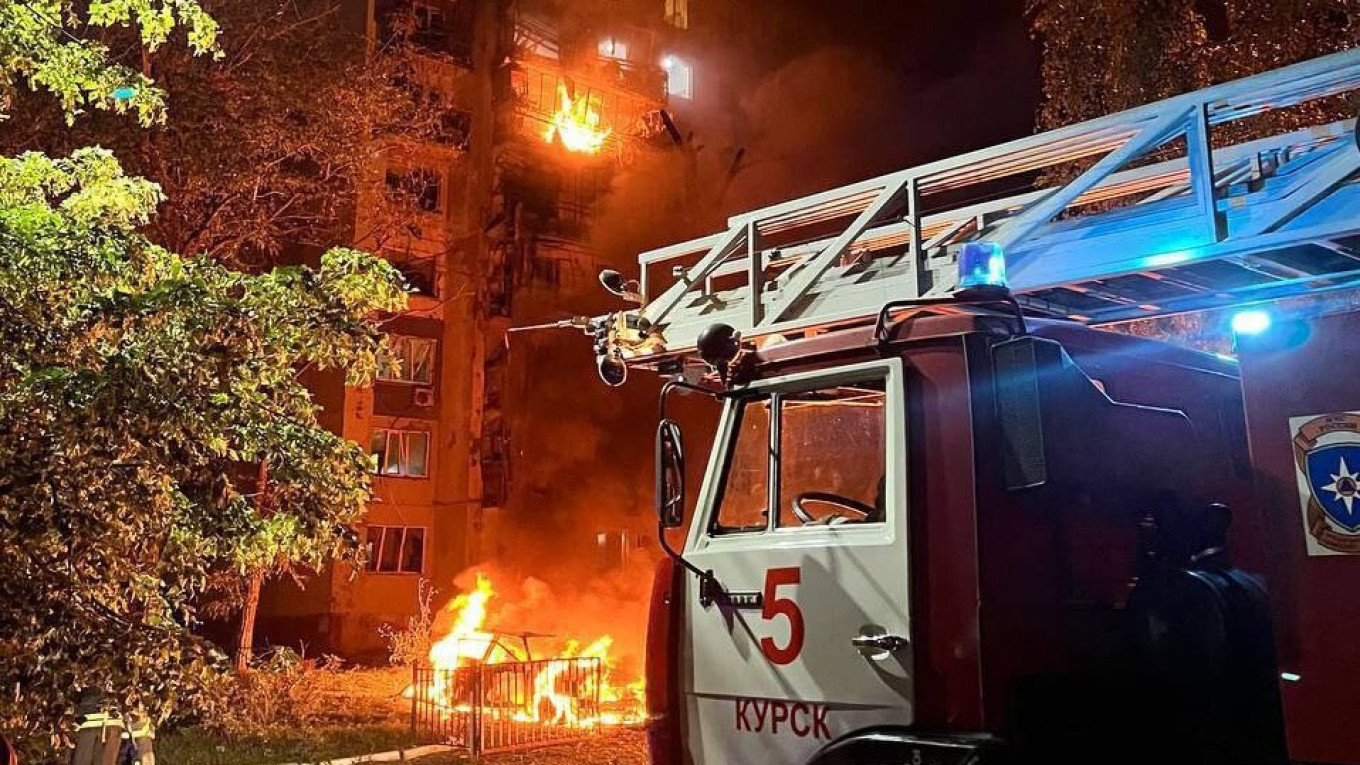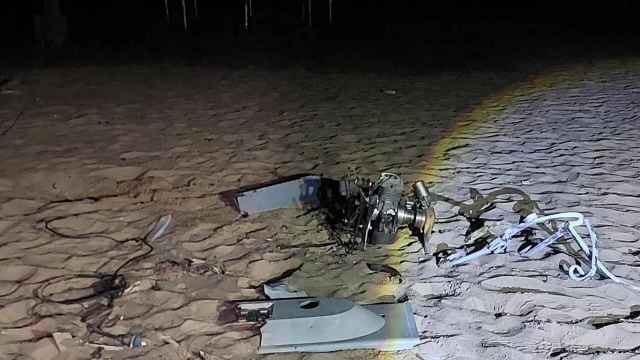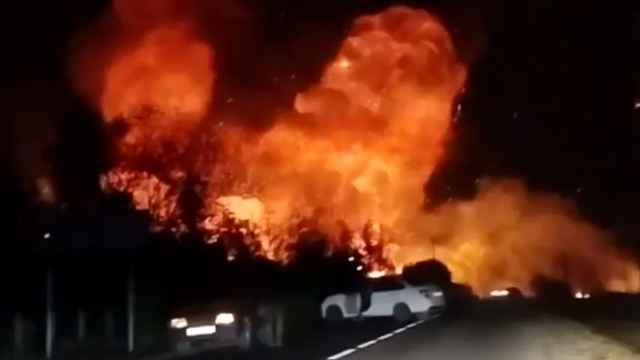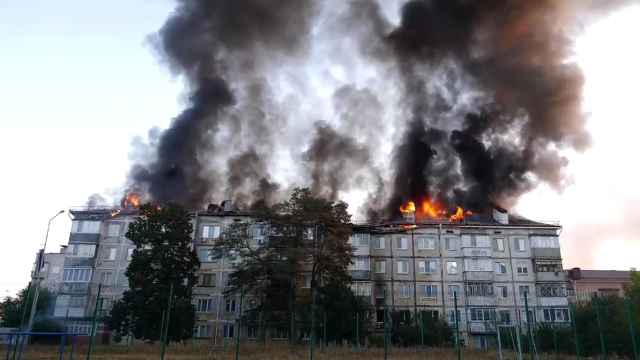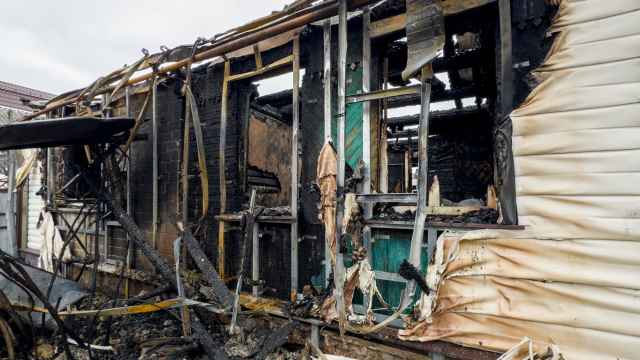A Ukrainian drone strike on an apartment block killed one person and wounded 12 others in the southwestern Russian city of Kursk, the region's acting governor said early Friday.
“Unfortunately, a 45-year-old woman died on the spot,” Governor Alexander Khinshtein said on Telegram. He later told reporters that 12 people were wounded in the overnight attacks.
Khinshtein surveyed the damage from the strike in the city’s eastern administrative district, 100 kilometers (62 miles) from the border with Ukraine.
Photos and videos published on his channel showed a badly burnt nine-story building, with Khinshtein saying that a total of 11 buildings and 50 vehicles were damaged by shock waves.
Russia’s Defense Ministry said its air defense systems had downed drones over nine Russian regions, including 13 over the Kursk region, and the Sea of Azov.
The governor of the neighboring Belgorod region said three people were wounded in overnight and early morning drone strikes. The governors of the Bryansk and Rostov regions reported property damage, but no casualties.
Civil aviation authorities briefly grounded flights at four regional airports where the military said it had downed Ukrainian drones.
Ukrainian drones also hit a Russian oil refinery in the central Russian city of Syzran, some 800 kilometres (500 miles) behind the front line.
“The Syzran oil refinery in the Samara region of Russia, one of the largest in the Rosneft system, was hit,” Ukraine's general staff said, referring to the network of facilities owned by Russian state-run energy giant Rosneft.
It said the facility produced aviation fuel and supplied the Russian army.
Unverified images on social media showed multiple fires and grey smoke billowing from the site at dawn on Friday.
AFP contributed reporting.
A Message from The Moscow Times:
Dear readers,
We are facing unprecedented challenges. Russia's Prosecutor General's Office has designated The Moscow Times as an "undesirable" organization, criminalizing our work and putting our staff at risk of prosecution. This follows our earlier unjust labeling as a "foreign agent."
These actions are direct attempts to silence independent journalism in Russia. The authorities claim our work "discredits the decisions of the Russian leadership." We see things differently: we strive to provide accurate, unbiased reporting on Russia.
We, the journalists of The Moscow Times, refuse to be silenced. But to continue our work, we need your help.
Your support, no matter how small, makes a world of difference. If you can, please support us monthly starting from just $2. It's quick to set up, and every contribution makes a significant impact.
By supporting The Moscow Times, you're defending open, independent journalism in the face of repression. Thank you for standing with us.
Remind me later.


